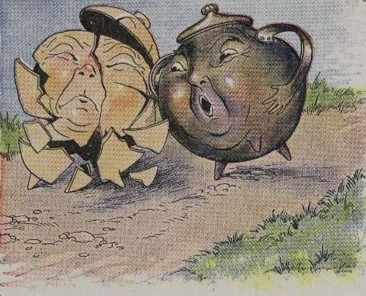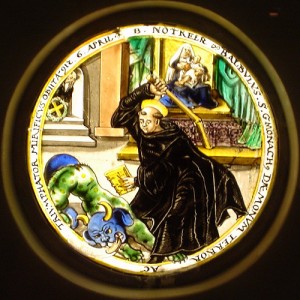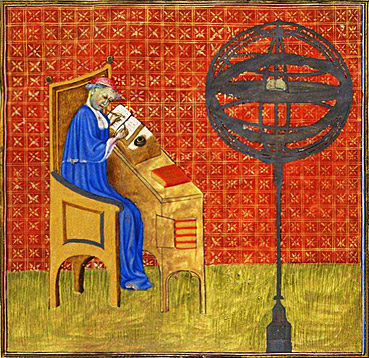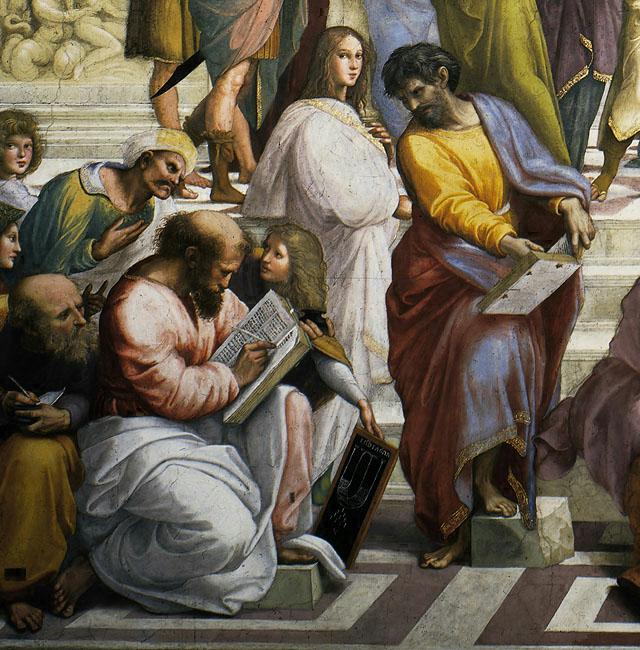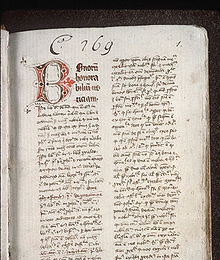Averroes (1126-1198) undertook to explain and comment on the works of Aristotle, in an attempt to clarify the Greek philosopher's concepts. One of those concepts was the idea of man's intellect, the debate over which was both stimulating and shocking for the medieval world.
Aristotle distinguished between a
passive intellect, which is man's predisposition to accept and hold ideas, and an
active intellect, which was the agent of analysis and creativity.* The active intellect was an outside force, and the blending or convergence of the external
active intellect with the internal
passive intellect differed in individuals, which is why we could strive to learn and think and better ourselves intellectually, but we were still different from each other. The connection between
active and
passive was not the same in each person. This accounted for different and individual personalities.
This was an obvious parallel to Aristotle's Realism: the idea that there exist "universal" abstract concepts—such as "dog"—outside of our direct experience, that allow us to directly experience multiple different dogs with different characteristics (which he called "particulars") and yet understand that they were all dogs.
Averroes explained this further, and created a religious controversy.
If the
active intellect was external (and from a divine source) but the less-powerful
passive intellect resided in man, and it was the blending of the two that created personality and human intelligence, then what happens at death when the external
active intellect is removed? As a divine and lasting and (presumably) unchanging force, it stays as it is, unaffected by its temporary connection to an individual. The human-centered
passive intellect dies with the human, the
active intellect withdraws, and therefore there is no individual personality that exists anymore.
For Averroes, understanding Aristotle meant that there was no survival after death of a personality. Your personality—what makes you "you"—is gone when you die, and there is no room here for a soul with your personality to exist in an afterlife.
Orthodox Mohammedan theology did not agree with this, nor did Christian theologians such as St. Bonaventure and St. Thomas Aquinas.
Averroes defense against the charge of heresy? That reason forced him to express these thoughts, but that of course he adhered to the truth as explained by his faith.
*
Aristotle used the term "intelligences" to refer to the non-physical (divine, or spiritual) forces that moved the celestial spheres. Christian thinkers would later call these "angels."

